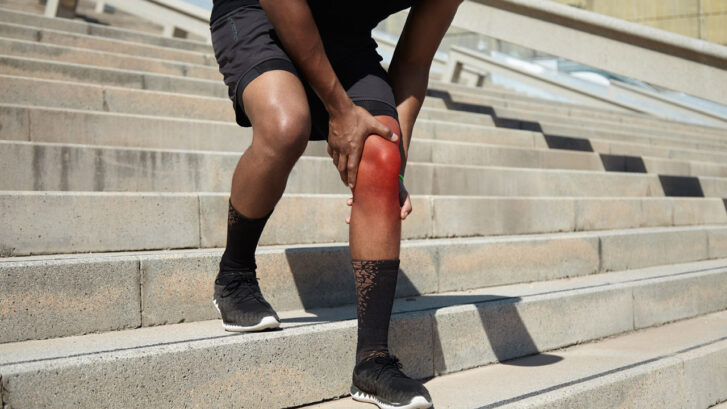Knee pain, a pervasive issue affecting individuals worldwide, can significantly impact one’s quality of life. Traditional treatments, such as knee replacement surgery, have long been the go-to solutions. However, the landscape is evolving, with Genicular Artery Embolization (GAE) emerging as a breakthrough treatment for knee pain. In this blog, we navigate through the nuances of knee pain, explore traditional methods like knee replacement, and shed light on how GAE, under the guidance of Dr. Ravul Jindal, is redefining pain management.
Understanding Knee Pain:
Knee pain is a common ailment, often associated with conditions like osteoarthritis. This degenerative joint disease causes inflammation in the knee joints, leading to pain, stiffness, and reduced mobility. Traditional approaches to managing knee pain have included interventions like pain medications, physical therapy, and, in severe cases, knee replacement surgery.
Traditional Methods: Knee Replacement:
Knee replacement surgery has been a longstanding solution for individuals with severe knee pain. While effective, it involves an extensive surgical procedure, prolonged recovery periods, and potential risks associated with major surgeries. For many, the prospect of knee replacement may be daunting, prompting the exploration of alternative treatments.
Genicular Artery Embolization (GAE):
Genicular Artery Embolization (GAE) is a minimally invasive procedure designed to address knee pain without resorting to extensive surgeries. Dr. Ravul Jindal, a renowned Vascular Surgeon and Varicose Veins Specialist leads this groundbreaking approach. GAE targets specific blood vessels around the knee that contribute to inflammation, disrupting their blood flow to alleviate pain associated with osteoarthritis.
The GAE Procedure:
During a GAE procedure, a catheter is skillfully guided to the genicular arteries surrounding the knee. This precision allows for the targeted delivery of embolic agents, blocking or reducing blood flow in areas contributing to inflammation. GAE provides a minimally invasive alternative for those seeking relief from knee pain, potentially avoiding the challenges associated with traditional knee replacement surgery.
Knee Arthritis and Geniculate Artery Embolization:
Osteoarthritis, a degenerative joint disease, often leads to inflammation in the knee joints, resulting in pain and reduced mobility. GAE intervenes by disrupting the blood flow in the inflamed areas around the knee. This breakthrough approach doesn’t cure the underlying disease, but early trials indicate its potential as an effective method to manage and alleviate the symptoms associated with debilitating knee pain.
Ideal Candidate for GAE:
GAE is particularly promising for individuals who may not be prepared for or inclined towards knee replacement surgery. Dr. Ravul Jindal, with his extensive experience in vascular surgery and varicose veins, can identify suitable candidates for GAE based on a thorough assessment of their condition, medical history, and lifestyle.
About Dr. Ravul Jindal:
Dr. Ravul Jindal, with over 27 years of experience, has earned global recognition for his contributions to vascular surgery and varicose veins. Currently serving as the Director/HOD in the Department of Vascular Surgery at Fortis Hospital, Dr. Jindal is actively involved in research, publications, and training sessions for medical professionals globally.
Conclusion:
Knee pain, a pervasive challenge, demands innovative solutions prioritizing patient well-being. Traditional methods like knee replacement, while effective, come with a set of challenges. Enter Genicular Artery Embolization (GAE), a minimally invasive breakthrough led by Dr. Ravul Jindal, offers a targeted approach to alleviating knee pain. As we navigate through the transformative landscape of GAE, it becomes evident that this procedure holds the potential to redefine pain management and provide relief for individuals grappling with the impact of osteoarthritis-related knee pain. Schedule your appointment for a personalized consultation.


